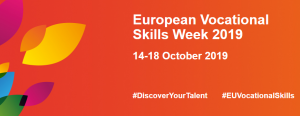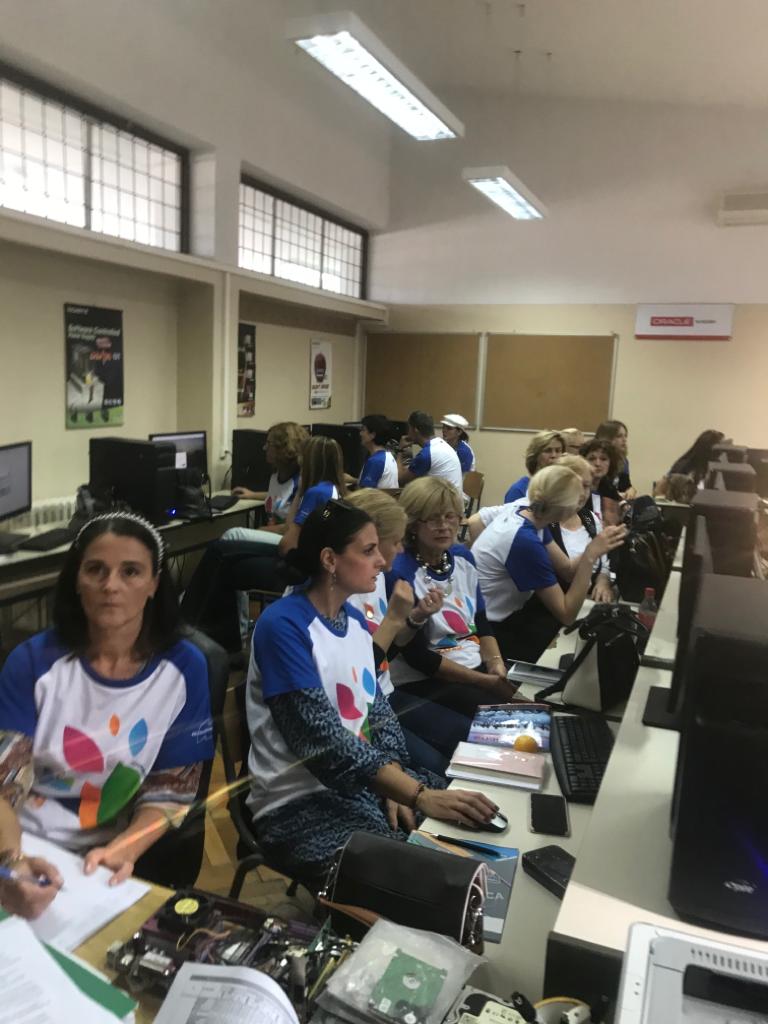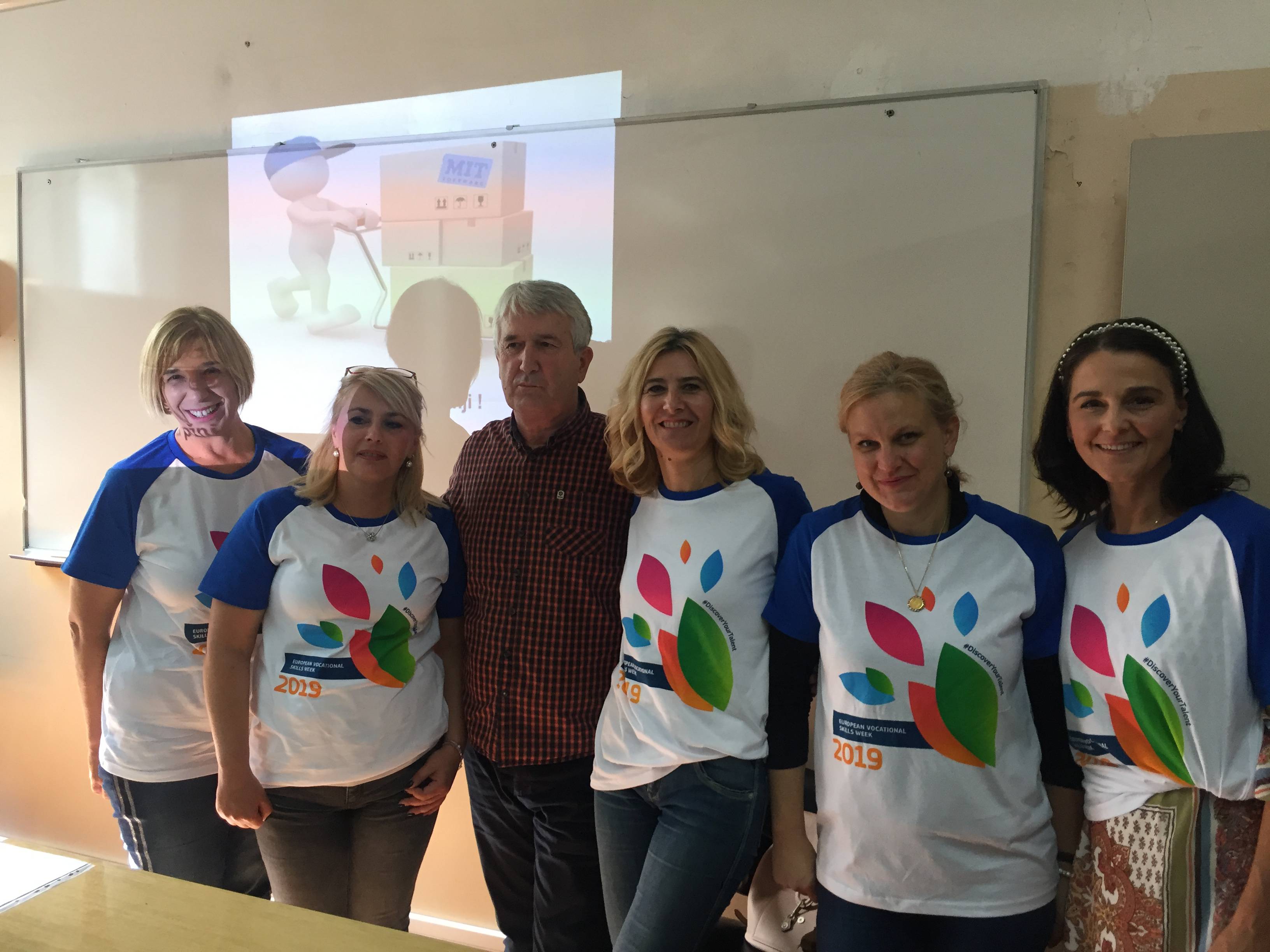| 2019-10-17 18:33:04 EUROPSKI TJEDAN VJEŠTINA STEČENIH U STRUKOVNOM OBRAZOVANJU I OSPOSOBLJAVANJU 2019. Europski tjedan vještina stečenih u strukovnom obrazovanju i osposobljavanju održava se na inicijativu Europske komisije. Svrha mu je podizanje svijesti o širokom rasponu mogućnosti koje nudi strukovno obrazovanje i osposobljavanje.
Naša škola je nizom aktivnosti i događanja (radionice, stručna predavanja) sudjelovala „European Vocational Skills Week 2019.“
Vanja, Marija and myself, all VET teachers at the Commercial School of Split, have decided to base our teaching process on games. We start with Incoterms clauses (rules intended to clearly communicate the tasks, costs, and risks associated with global or international transportation and delivery of goods), which every student at the school needs to know at the end of their vocational training. By the term ‘game-based learning’, we mean the use of a game, or game elements, in the teaching process, to achieve predetermined educational outcomes. Gamification is a challenge in pedagogical practice and is certainly a great way to motivate students. The approach, which uses general, well-known games such as Ludo, Risk or Monopoly, or more sophisticated digital tools or games, such as Escape Room, Maze Chase Labyrinth and QR codes, is a perfect solution for students. Specifically, we have decided to teach Incoterms clauses using three steps: 1. Introducing the basic terms in international business through a social game at the very beginning of the educational process. We haven’t had to design a new social game, but instead, use the well-known Ludo. Students are divided into groups of four, and unlike in classic Ludo, every time a player lands on a field marked with a number, he/she has to respect the command under that number. For example, field 5 might say: ‘Although the most expensive, air transport is the fastest form of transportation. Jump five fields in advance!’ 2. Introducing the Incoterms using the bubbl.us web 2.0 digital tool. We believe that digital tools like bubbl.us are very useful for education, as mind maps make the learning process more interesting. Students make mind maps for Incoterms, for example, by starting with the central bubble, ‘Incoterms Clauses’, and then expanding it into 11 different bubbles for the 11 terms. Each term is then broken into more bubbles, allowing access to external content. Bubbl.us allows the user to change the colour of the bubbles, the size of the text, and the way in which the bubbles are connected to each other. 3. Finally, evaluation is carried out through digital tool ‘Escape Room’, where questions are asked through google forms and answered through problem-solving using various digital tools. For example, if a student doesn’t answer a question correctly, a QR code leads them to various games, such as crossword, Maze Chase Labyrinth and Wordwall. These help them find the answer. The students enter the solutions into the forms, and for correct answers to all questions, they gain a digital badge, archived in a digital notebook to confirm that they have successfully mastered that topic. If a student didn’t answer all questions correctly, the google form would not let them ‘escape the room’ until they did. We hope to encourage all teachers involved in vocational training to use games in their classroom - have fun with your students! Vanja Perković, Marija Istenić and Ivana Prezzi, VET teachers at Commercial School of Split, Croatia |
| Trgovačka škola Split |


